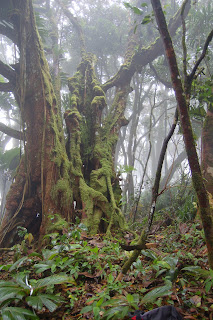
It is clear that human activities are effecting the environment at an unprecedented rate.
Fishing is a major source of food and other resources for humankind. Today most marine fish stocks are heavily exploited, and many are overexploited. Such intensive utilization has raised concerns about the sustainability of the modern fishing industry. But the problem lies deeper than this, as fish stocks crash, it is likely that other environmental variables are experiencing the secondary effects of such large scale disturbances. In recent times it has become clear that such actions by humans may be responsible for the rapid evolution of a species.
An understandably tentative theory involving the genetic changes of exploited fish stocks in a diverse and variable environment. Over the last few decades scientists have been observing phenotypic changes in fish populations, producing theories as to why such changes may be occurring.
Due to the high levels of mortality, size and selective nature of commercial fisheries, it is likely that particular life history traits will be selected for in exploited fish populations. Differentials have been found to be high for characteristics such as body size and age of maturation. Historically, larger fish are more valuable and more sort after, a late maturation means species spend more time in areas that are at risk from fishing practices, being caught before they even spawn. With such risk, there has been a reversal of fitness. With those that a smaller less easily caught and spawn early becoming more fit within the population. For example, heavy harvesting of Pacific salmon of a population returning to spawning streams; severely alters selection on life history traits. By differentially removing larger fish from harvested populations, fishing exerts intense selection on age and size at sexual maturity, this response to harvesting practices has been reported for many fish stocks.
Using the BFF (Big Female Fish) rule, when maturation takes place earlier and average size of fish is decreases, sustainable yield of large fish, producing many more offspring decreases and so does the market value of catches. If the observed changes in maturation have a genetic component, unless harvesting methods are radically changed it is unlikely that stocks will recover and more importantly it is unlikely that species will never recover to their former large sizes and late maturations. Genetic recovery occurs much more slowly than ecological recovery. It is therefore in the interest of fisheries managers to prevent unwanted genetic changes as early as possible.
It is important to acknowledge that there is till much conflict surrounding the role of fisheries induced evolution, however, most scientists agree that it does occur in some form yet to what extent in debateable. For example present day cod mature at a much younger and smaller size than their ancestors at the begining of the 20th century would have done when faced with similar growing conditions. Suggesting genetic changes rather than a plastic response to environmental variation.
Not only is the suggestion that the over exploitation of the oceans is causing a rapid evolution of many species alarming, but these effects may cascade to other species causing impacts on biodiversity and ecosystem functioning. Or quite simply, the monsters our Great Great Great Grandfathers caught off Britains coast line will be a thing of the past and remain there indefinately.









